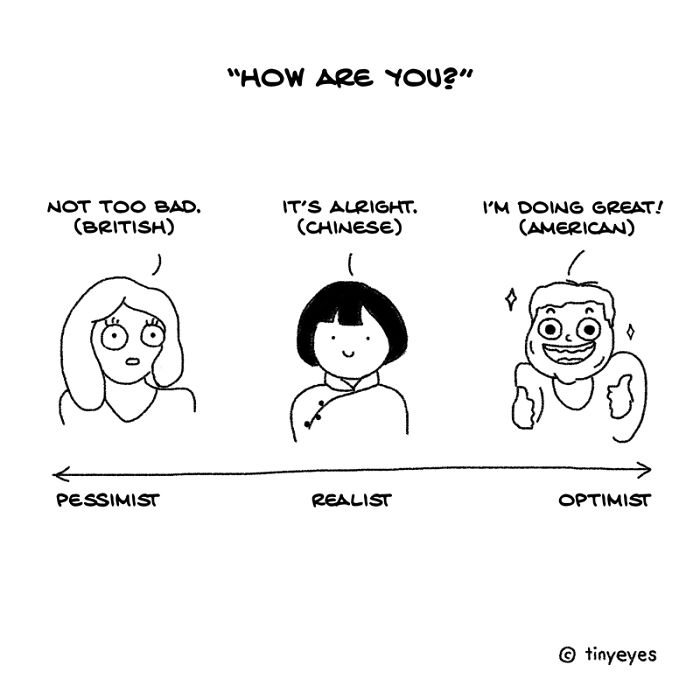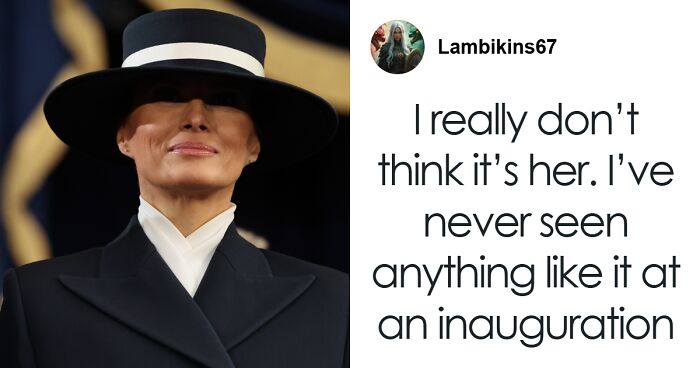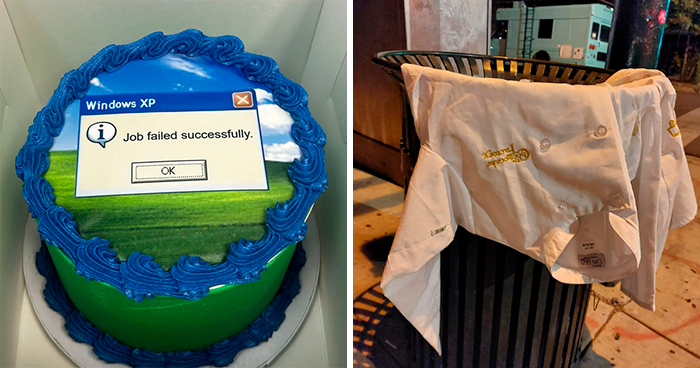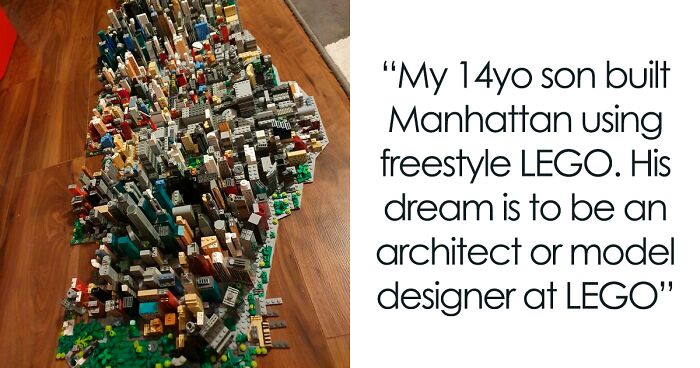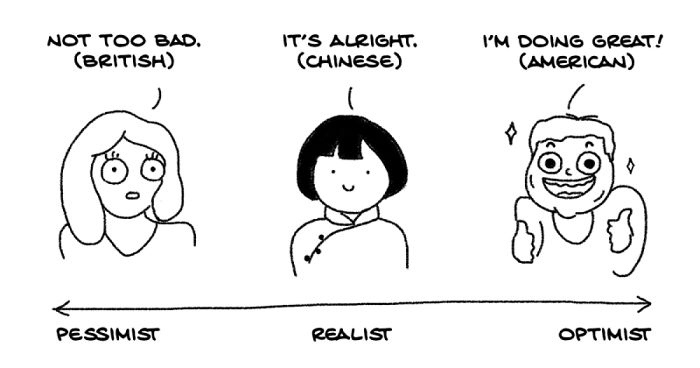
34submissions
Finished
I Made These Comics To Compare Chinese Culture With Western Culture Through Everyday Life
My name is Siyu. I was born and raised in Beijing, and I've spent the last ten years traveling, studying, and working abroad in the US, UK, and France. Many people that I met were curious about Chinese culture, but their impressions of China would end up with words like 'communist,' 'pollution' and 'no Facebook.' While many facts are true, the contemporary, living, and multifaceted Chinese way of life is rarely heard of.
I started "tiny eyes" webcomics a year ago in the hope of sharing cultural differences through everyday life. To me, learning about western culture has always been a fun experience, and I want to pass this feeling to people who are curious about China. In lots of my cartoon drawings, I compare Chinese culture to other cultures. Through comparison, we realize how differently we act in front of the same situation and how we tend to think in a certain way instead of another. In the end, every culture is "weird" in its way, but it's also the weirdness that makes it interesting.
I post these funny comics regularly every week, and I share slices of my personal life and experience through Instagram. I hope you enjoy it!
More info: Instagram
This post may include affiliate links.
Actually, we’re not optimistic. That’s just the expected social response.
You don't want to drive in big cities like Beijing.
Maybe you have heard that Chinese eat cats. A few horrible people in some obscure places maybe, but the majority, NO!!
It takes me sometime to get used to making constant eye contact when talking to people. Traditionally, Chinese people tend to avoid direct eye contact when talking to each other, which is a way to show respect and obedience, but in lots of western cultures, especially in English-speaking countries, avoiding eye contact signifies hesitation and dishonesty. (Correct me if I’m wrong.)
Beauty = Thin. “Gaining weight” brings absolute horror for many Chinese girls, even though most of them are already considered thin in other cultures. I’ve seen girls who eat only one apple a day and who drink special tea (which makes you go to toilet 20 times a day) in order to lose weight in a very short time. Movie stars and super models are pushing this aesthetic to its extreme through mass media. When will we be able to simple enjoy being who we are?
eople have less trouble naming Chinese political figures than naming great Chinese artists and scientists, who have also played a great role in shaping Chinese culture. Why? They don't learn much about it in school; they don't see them in the media often; and in China we lack initiatives and channels to communicate to the outside word.
There’s a Chinese saying “三思而后行”, which means to think twice before taking actions. In history, Chinese value highly reflection and past experience, but acting cautious and staying wise didn’t save the people from the arrival of the early western explorers who sailed into the unknown and took chances at the risk of their lives. China was forced to take actions in its modern history, often times too fast in exchange for development.
While too much reflection on the past slows down the process of change and innovation, too much action without thinking results in waste of resources and irreversible consequences. It’s time for thinkers and doers to meet and learn from each other in this increasingly connected world. It’s happening.
When asked this question, some of the Chinese moms tell their little kids that they were born from their armpits, or even worse, picked up from a trash can.
I’ve experienced student dormitories in three countries: In the U.K. I have my own private room with shared public space; In the U.S. I shared my dorm with one roommate; In China, I used to live with 5 girls in the same room. This lack of privacy must be shocking for some of you, but in a country with 1.3 billion population, space is always a problem. While there are many inconvenience not having enough private space, on the bright side, sharing a room with someone also makes you learn quite a deal about communication, responsibilities and tolerance.
It’s hard for Chinese to directly express their love to their families and friends. Instead of saying love, we show care to the health of people we love, ask them if everything goes well, and buy nice things to make their life more comfortable. In history, Confucius enforced social orders by putting people in different relations/obligations, but the expression of personal feelings was never encouraged. Emotions need to be under control.
How do you show people that you care about them?
Chinese people love their food, they spend lots of time savouring and enjoying their meals. Food is not just “fuel” for the body, but a pleasure, an art, and a way of socialising. If you want to make friends, go eat. If you want to close a business deal, go eat. If you want to pursue a romantic relationship, go eat.
Since ancient times, food has been considered priority in Chinese culture. The government’s goal was to make sure that each person is taken care of and "has enough to eat”. From another angle, it also suggests the realistic character of Chinese: food goes before ideas, and this life is more important than after life.
Chinese have trouble taking compliments from other people, because they are raised to be humble, to be self-reflective, and to not stand out from the crowd. So when someone notices you and makes a compliment, you tend to lose the inner balance and get nervous very quickly.
Can you name a classic Chinese design or a brand? Probably difficult. But have you bought anything “Made in China”? Very likely yes. Chinese products are often associated with the word “cheap” and not high quality, sadly. Many aspiring local designers have been trying to create original and valuable products, but problem such as the lack of copyright protection has complicated the process. Still a long way to go.
In China, it’s not rare to see young people choosing to live with their parents after getting out of college. For one thing, it’s more economical than renting a house on your own. And for another, Chinese are very family oriented, so getting support from your family it’s expected in the social norm. In the the United States, however, people value independence so much that it’s embarrassing to have things given to you while you have the ability to live on your own.
In Chinese schools, smoking is strictly prohibited and any student who smoke is considered “bad”. It’s not just in the sense of “bad for health”, but also considered a symbol for moral degradation. In France, I notice that there are lots of teenagers who smoke, and it’s actually considered “cool” among their friends. There’s even peer pressure to learn how to smoke. Smoking is also a normal way of socializing so there isn’t any negative moral aspect associated with it.
In a Chinese family, a child usually takes the central position and gets all the love and attention from their parents, which could also lead to ignorance and lack of communication between the couple.
What really matters is not the format, but the content. In France, reading is a habit. There are bookshops everywhere, people take books with them on vacations and give each other as gifts. There’s a great variety of popular books: fiction, science-fiction, history, art, philosophy, comics…
In China, what people read mostly are news, practical books related to their professions, or “How to become the next Steve Jobs”. Of course there are also people who read extensively, but in general, reading hasn’t become a habit.
ne time a friend asked me, “Do you pass a lot of time writing your name? Chinese characters looks so complicated!” This made me giggle, but in a way it’s true because each Chinese character is a structure on its own and does not follow a linear movement as the alphabet.
Chinese rely heavily on their network in the society(what we call "关系"). The first thing you do in a foreign place is to connect with your people so that you could “take care” of each other and get necessary help. Of course it also makes you feel more comfortable. On the other hand, the general lack of adventurous spirit (lack of individualism) results in an attitude that’s more reserved in a foreign environment. While some Chinese may not be comfortable enough to “mingle”, most of them are generally kind and tolerate towards foreign cultures.
Chinese tend to wait for their turn to speak, although in a foreign culture, that turn may never come because it requires taking initiatives. From an early age, we are told to be humble, to think about others first(our position in a relationship) and hide our own opinions. (It doesn’t mean that we don’t have opinions.) That’s one of the reasons we appear to be timid in a group discussion, and are generally not good at public speaking or debate. However, this situation has also changed gradually as society put less constrains on young generations and more chance for them to communicate with the world.

 Dark Mode
Dark Mode 

 No fees, cancel anytime
No fees, cancel anytime 


